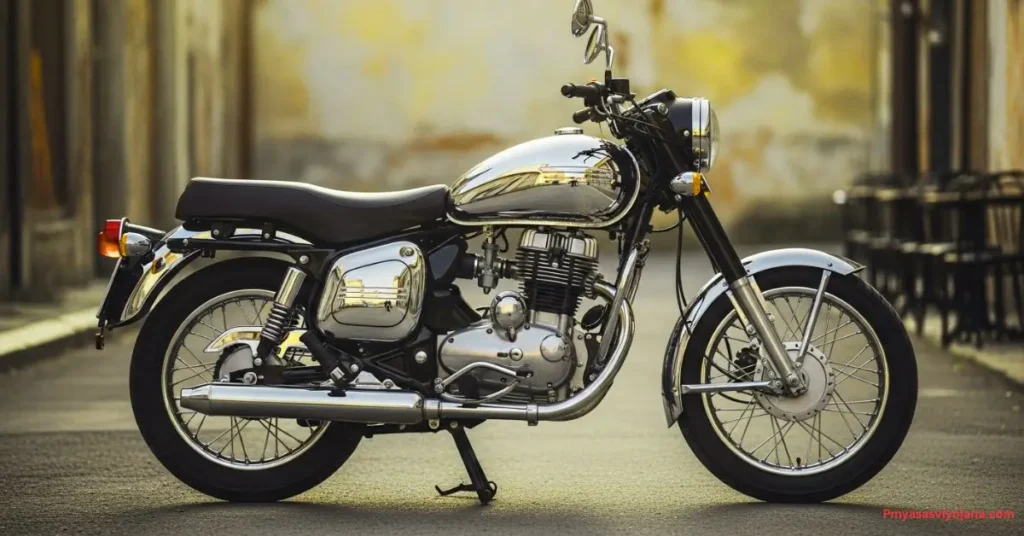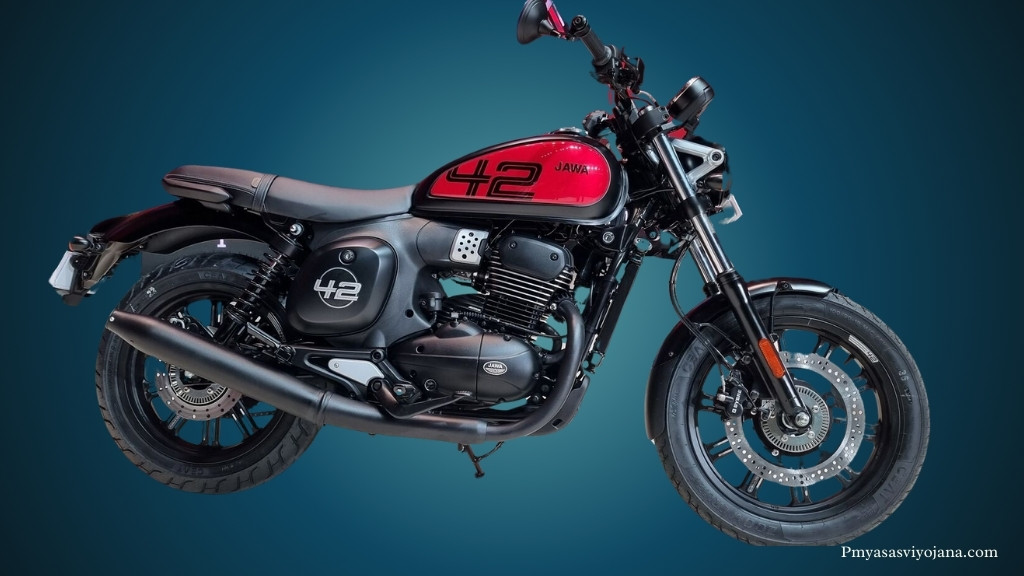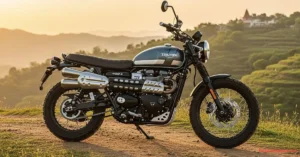If you’ve ever watched a classic motorcycle glide by and felt your heart skip a beat, you’re not alone. But that pull toward retro style often comes with a worry—can you actually afford a bike that blends old-school charm with reliable, modern performance? Hi, I’m Rajesh, a longtime Jawa fan who’s owned both the original classic and the new 42 FJ. I’ve spent hours in the saddle and at the service station, so I know what’s hype and what really matters. Here’s a simple, honest look at the Jawa 42 FJ: what makes it different, how it feels, and whether it’s worth your hard-earned cash.
Let’s Break It Down: What is the Jawa 42 FJ, Really?
Think of the Jawa 42 FJ like your favorite classic leather jacket. On the outside, it’s timeless—those flowing lines, round headlight, and sculpted tank draw stares wherever you ride. But inside, it’s lined with surprising tech: a powerful 334cc engine, crisp digital cluster, and features made for daily use.
Many think the 42 FJ is just a Jawa 42 with bold paint. Not true. The FJ packs a bigger, more refined 334cc Alpha 2 engine, a slick 6-speed gearbox, and a premium finish. The chassis feels sturdier, the ride inspires confidence, and the attention to detail stands out—from blackout alloys to that brushed aluminum tank panel. The result? A bike that honors classic Jawa heritage, yet feels right at home in 2024.
The ‘Why’: Real-World Benefits of the Jawa 42 FJ
Here’s the kicker: the Jawa 42 FJ’s 334cc liquid-cooled engine puts out about 29.1 PS at 7,500 rpm and 29.6 Nm at 6,000 rpm. That’s a step up from the regular Jawa 42’s 293cc, 27.3 PS engine. What does that mean for you? Pulling away from traffic lights feels effortless, overtaking on highways is safer, and the bike cruises at 90-100 km/h without breaking a sweat. The 6-speed gearbox and slip-assist clutch make rides smooth, even in stop-and-go traffic.
A Classic Look With Modern Tech
You don’t have to pick between nostalgia and convenience. The 42 FJ offers:
- Alloy wheels with a clean, modern finish
- Blacked-out engine and exhaust for a meaner look
- Full digital cluster (with Bluetooth in higher trims)
- LED headlight and taillight for better visibility
- USB charging port for your devices
It’s the rare bike where the past and present shake hands.
Comfort and Handling Upgrades

Long rides or city sprints, the FJ has your back. The suspension (41mm telescopic front forks, twin rear shocks with preload adjustment) soaks up rough roads better than you’d expect. The seat is shaped for all-day comfort, and the 790 mm seat height means most riders can plant their feet with confidence. Dual-channel ABS and a larger 320mm front disc add peace of mind. Even the weight—at 184 kg—is balanced for easy handling.
Ownership Assurance and Warranty
Jawa sweetens the deal with a 4-year or 50,000 km warranty (extendable to 6 years), plus 1-year free roadside assistance (can be extended up to 8 years). Running costs are reasonable, and service intervals are forgiving. For anyone worried about maintenance or hidden costs, this bike brings real peace of mind.
Is the Higher Price Justified?
Let’s tackle the big question. The Jawa 42 FJ starts at ₹1.99 lakh ex-showroom, compared to about ₹1.72 lakh for the regular Jawa 42. That’s a premium, but you’re paying for:
- A bigger, more advanced engine
- Upgraded brakes, suspension, wheels, and styling
- Modern features (digital cluster, USB charging, LED lights)
- Better warranty and support
Stacked up against rivals like the Royal Enfield Classic 350 or Triumph Speed 400, the 42 FJ hits the sweet spot for those who want a unique look, strong performance, and thoughtful features. In my experience, it’s money well spent if you value both style and substance.
A Step-by-Step Guide to Choosing and Owning the Jawa 42 FJ Safely
Before you dream about open highways, remember: safety comes first. Never buy a bike without a test ride, and always check that your dealer is authorized.
Here’s how to make a smart, safe choice:
- Book a test ride: Only your body can tell if the fit is right.
- Inspect the bike: Look for paint flaws, check the digital cluster, and confirm all switches work.
- Check the VIN and documents: Match numbers on the engine, chassis, and paperwork.
- Ask about warranty and roadside assistance: Make sure you’re registered for extended support.
- Read the owner’s manual: It’s dry but important—know your service intervals.
- Buy the right safety gear: Invest in a quality helmet and jacket before your first ride.
- Follow break-in guidelines: For the first 1,000 km, keep revs moderate and vary your speed.
- Schedule regular maintenance: Stick to the service schedule for long life and warranty validity.
Pro-Tip Most People Miss: The Rider-First Secret that Sets the 42 FJ Apart
Here’s something you won’t find in the manual: customizing the rear suspension preload and tire pressure for your weight can change your ride overnight. If you’re heavier or lighter than average, adjusting these settings makes the bike glide over bumps and corners better. I found that setting the rear shocks one notch firmer and keeping tires at the recommended pressure made my city commutes and weekend trips far more comfortable—and handling felt sharper, too.
Conclusion
In a crowded field of retro bikes, the Jawa 42 FJ stands out for one reason—it gives you the nostalgia you crave, but doesn’t ask you to sacrifice performance or comfort. If you want a bike that feels special every time you turn the key, yet won’t let you down on the road or at the service shop, it’s a strong contender.
Disclaimer: I’m a passionate rider, not a professional mechanic. This article is based on real experience; always consult an expert before making a major purchase or modification.






